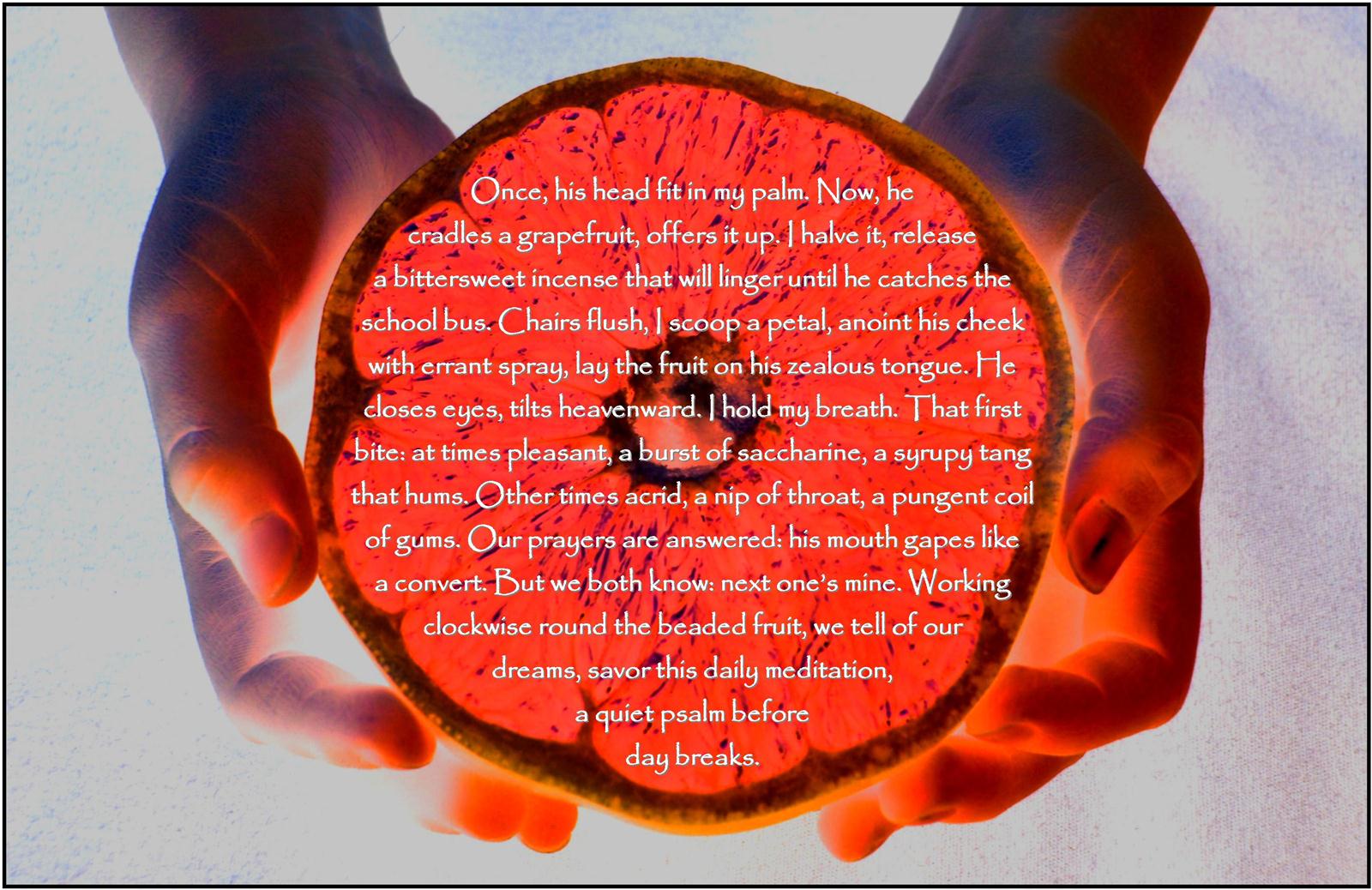New Year’s Eve, 1921
I was combing my sister’s fragrant hair,
braiding it down her white nightgown,
when Mother came into the room
to tell us The world will end tonight,
sometime before the year is over.
Out of bed, she said, and on your knees.
We shivered and sniffed on the cold floor
as she wept above our heads, calling
Oh, hasten time towards Your Glorious End,
which I and my two lambs eagerly wait, Amen.
Emily and I crawled under the covers,
twining our feet together for warmth.
The preacher’d predicted the scythe would reap
so fine a path that of two in the bed,
one would be saved, the other doomed.
Through the sludge of hours, I waited, knowing
my sister and myself were both equally
guilty of the sins of children: inattention,
disobedience, dirt. Which of us
would rise through the room’s frost air,
through the ceiling and the roof, to soar
upon the warm wind of God? Which,
waiting to be lifted, would plummet
plunged into to the icy lake of Hell?
My salvation would be my sister’s doom.
In terror that God might come, in fear
of being alone, of being caught
in a selfish wish, I lay, listening
to her breathe, trying not to think,
until the cuckoo clock panted midnight.
Then a celebration, without horns
or colored hats: just the blessed relief
of quiet, thoughtless sleep.
Next morning at the breakfast table,
Mother served oatmeal and red-eyed silence.
“”New Years Eve, 1921” is reprinted from Poets West Literary Journal.
Roberta Feins was born in New York, and has also lived in North Carolina and (currently) in Seattle. She works as a computer consultant. Roberta received her MFA in poetry from New England College in 2007. She has been published in The Cortland Review, Pif Magazine, Antioch Review, Tea Party, Floating Bridge Review, The Lyric, and Five AM. Roberta is an editor of the e-zine Switched On Gutenberg.

